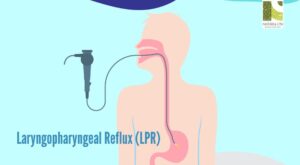Emotional Intelligence: The Science of Understanding and Managing Emotions

In a world where IQ (Intelligence Quotient) has long been seen as the gold standard for success, research over the past three decades has revealed another equally important—if not more crucial—predictor of personal and professional achievement: Emotional Intelligence (EI). First popularized by psychologist Daniel Goleman in the 1990s, EI is not about how “smart” you are in the traditional sense, but about how well you understand, manage, and respond to emotions—both your own and others’.
What is Emotional Intelligence?
Emotional Intelligence is the ability to:
- Recognize and understand your own emotions.
- Recognize and understand emotions in others.
- Use this awareness to manage behavior and relationships effectively.
Scientific literature defines EI as comprising a set of emotional and social skills that influence the way we perceive and express ourselves, develop and maintain relationships, cope with challenges, and use emotional information to guide thinking and actions.
The Science Behind Emotional Intelligence
EI engages both the limbic system (the brain’s emotional center) and the prefrontal cortex (responsible for decision-making and regulation).
- Amygdala: Detects emotional stimuli, like fear, anger, or joy.
- Prefrontal Cortex: Regulates responses, allowing for thoughtful action instead of impulsive reaction.
- Anterior Cingulate Cortex: Plays a role in empathy, impulse control, and emotion regulation.
When these systems are in balance, emotional intelligence is high; when stress overrides them, emotional misjudgments are more likely.
The Five Core Components of Emotional Intelligence
According to Goleman’s model, EI can be broken down into five interlinked skills:
1. Self-Awareness
- Understanding your emotions, strengths, weaknesses, values, and impact on others.
- Science Insight: Studies show that people with high self-awareness have stronger activation in the insula, a brain region linked to emotional perception.
2. Self-Regulation
- Managing disruptive emotions and impulses, maintaining self-control, and adapting to change.
- Scientific Note: The prefrontal cortex plays a major role in suppressing impulsive emotional reactions.
3. Motivation
- Staying committed to goals with passion, optimism, and resilience.
- Intrinsic motivation often drives long-term achievement more than external rewards.
4. Empathy
- Understanding others’ emotions, perspectives, and needs.
- Neuroscience Insight: Mirror neurons in the brain allow us to “feel” what others feel, forming the biological basis for empathy.
5. Social Skills
- Building and maintaining healthy relationships, managing conflict, and inspiring others.
- High EI individuals excel in collaboration and influence without manipulation.
Why Emotional Intelligence Matters
1. In Health
- Lower Stress Levels: High EI correlates with reduced cortisol levels, protecting heart health.
- Better Mental Health: EI helps in managing anxiety, depression, and emotional burnout.
- Improved Recovery: Emotional regulation enhances coping in chronic illness.
2. In Work
- Harvard research shows that EI accounts for nearly 90% of what sets high performers apart in leadership roles.
- Employees with high EI have better teamwork, adaptability, and conflict resolution skills.
3. In Relationships
- EI predicts relationship satisfaction more than IQ.
- Couples with high EI communicate better and manage disagreements constructively.
How to Improve Emotional Intelligence
Scientific studies show EI is trainable at any age. Here are evidence-backed methods:
- Practice Mindfulness
- Mindfulness meditation strengthens the prefrontal cortex and reduces amygdala reactivity.
- Just 8 weeks of practice can significantly improve emotion regulation.
- Reflective Journaling
- Writing about emotional experiences helps process and understand feelings.
- Active Listening
- Train yourself to listen without immediately preparing a reply.
- Cognitive Reframing
- Replace negative interpretations with balanced, constructive ones.
- Feedback Seeking
- Honest feedback from peers can highlight blind spots in your behavior.
A Word of Caution: Emotional Intelligence Misuse
While EI is often beneficial, it can also be used manipulatively—such as influencing others for personal gain without regard for their wellbeing. Ethical self-awareness is key to ensuring EI is used constructively.
Emotional Intelligence is more than a “soft skill”—it’s a scientifically validated framework that underpins resilience, leadership, and overall wellbeing. In today’s fast-paced, interconnected world, cultivating EI is not just an advantage—it’s a necessity.
As Goleman puts it:
“What really matters for success, character, happiness, and lifelong achievements is a definite set of emotional skills—your EQ—not just purely cognitive abilities.”
References :
1. Emotional Intelligence
2.Emotional intelligence is associated with connectivity within and between resting state networks
3. The Neuroscience Behind Emotional Intelligence
4.Utilizing Emotional Intelligence in the Workplace





